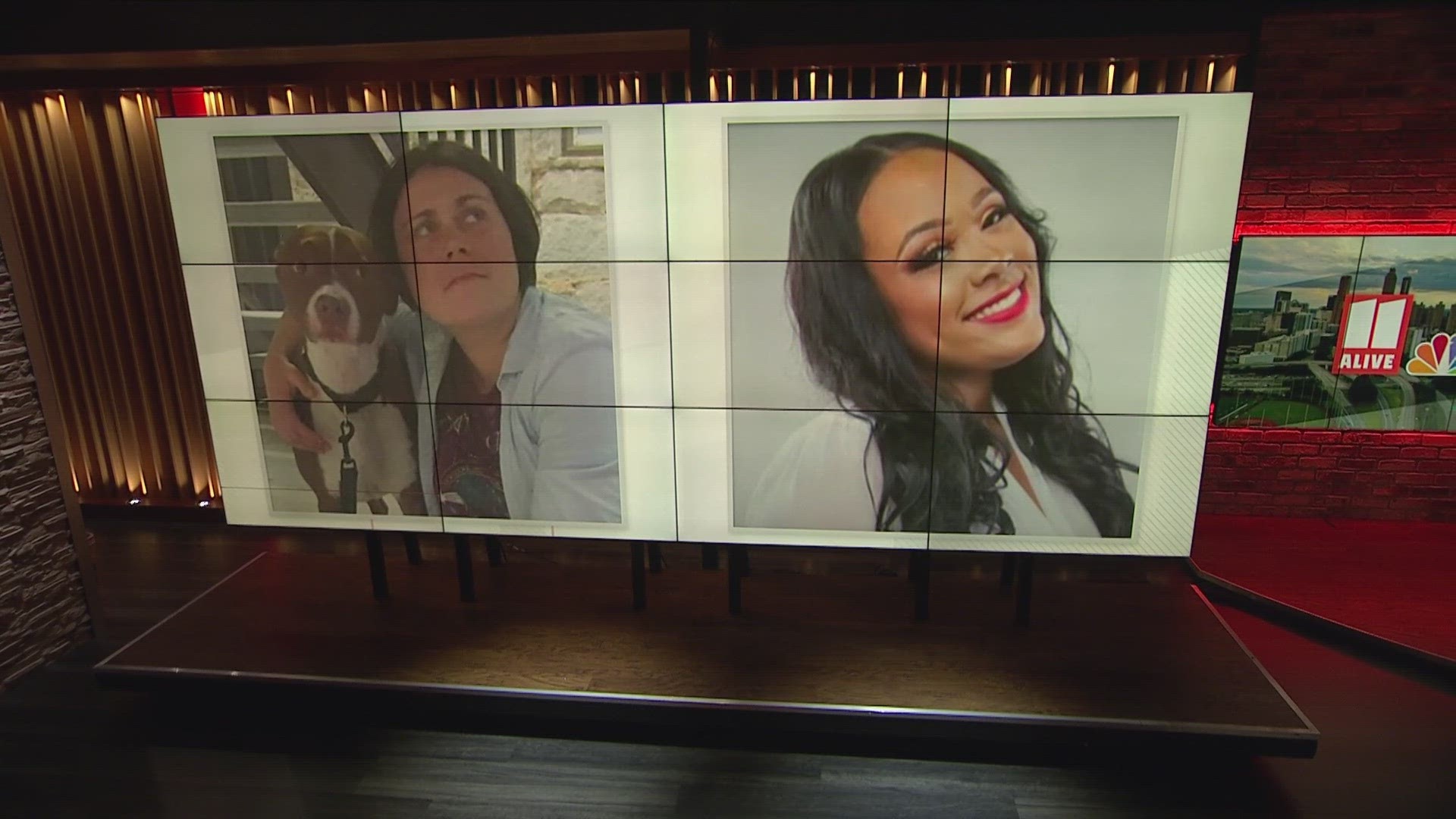ATLANTA — Friday marked two years since police found 40-year-old Katie Janness and her dog, Bowie, stabbed to death in Piedmont Park.
On Friday, Atlanta Police Department held a press conference asking the public for help. Police said no tip is too small and pleaded with people who may know anything to call it in.
11Alive spoke with the president of the International Homicide Investigation Association, Paul Belli, to get perspective on the case, the little information released and what detectives are facing going forward.
Belli said he knows every day that passes adds to the frustration for both the family and friends and the investigators working to solve the case.
“For me, two years, while it is obviously seems like a long time, isn't necessarily when it comes to gathering of evidence, developing leads, continuing to talk to people,” Belli said. “I can think of cases where it took me over a year to just identify what turned out to be witnesses on video in another murder that occurred in a park.”
Belli said, while the first 48 hours are crucial, often, time is on the side of the investigation.
“In the sense of all of your processing, that's what you're gathering in those crucial hours” Belli said. “Those cases can transition to a point where time is on your side. And we don't know necessarily what the what the homicide detectives have as far as information. And personally, I think that's a good thing, because that likely means that they have plenty to work with.”
Atlanta Police said on Friday that Janness’ death is not a cold case, at this point. Belli agreed.
“Not in my opinion, no. I don't think that two years is enough time,” Belli said, later explaining that sometimes police just need the right person to call in a tip. “Sometimes folks don't realize necessarily that they have the information. Very commonly, we ask people to call in about if they saw something strange when in reality we just want them to call in and say what they saw, if they saw anything, if they were close to that area during that time. Because what they may not think is strange may be actually key to the case.”
The July 2021 murder garnered international attention. Belli said that was probably, in part, due to the brutality of it. The autopsy report said Janness was stabbed 50 times.
“When you see that number of stab wounds, I can't help but think, as far as in my experience, that typically shows a significant amount of aggression, whether that is aggression towards that particular person, that’s part if the investigation,” Belli said. “Unfortunately, Katie was in the way of that aggression.”
Atlanta Police said on Friday that they couldn’t say if they believe the suspect or suspects knew Janness. Additionally, when asked about evidence like cell phones and biological data, police said they ‘don’t want to put that out there.'
Before the press conference, 11Alive asked Belli for reasons behind why APD has been relatively tight-lipped about Janness’ case. He said, often, that’s for the best of the investigation.
“That’s actually likely a very good thing when you're holding that case information close. There's a lot of important factors for that, not the least of which is for your upcoming and hopeful prosecution of a suspect,” Belli said. “Releasing too much can obviously have a detrimental impact on actually arriving on a suspect. But it can have a significantly detrimental impact on the prosecution of the case.”
Following the murder, investigators learned some of the city’s surveillance cameras in the park were not working. Belli said while that would have been helpful, solving the case cannot be dependent on technology.
“Of course, it would be great if those cameras in the park were working,” Belli said. “But it's unfortunately just not an uncommon thing that sometimes technology fails us. But I think we have to look back and remember, too, that before all of this technology, you had to solve cases by talking to people. And that still holds true today.”
Belli said he also still holds onto hope that Janness’ case will get solved.
“I believe there is hope. I think what we've seen today with cases that are 40, 50, 60 years old being solved almost on a weekly basis right now…that gives me hope,” Belli said. “Do I want everybody to wait 50 or 60 years? Certainly not. But I think it also shows that that the hope is there.”

